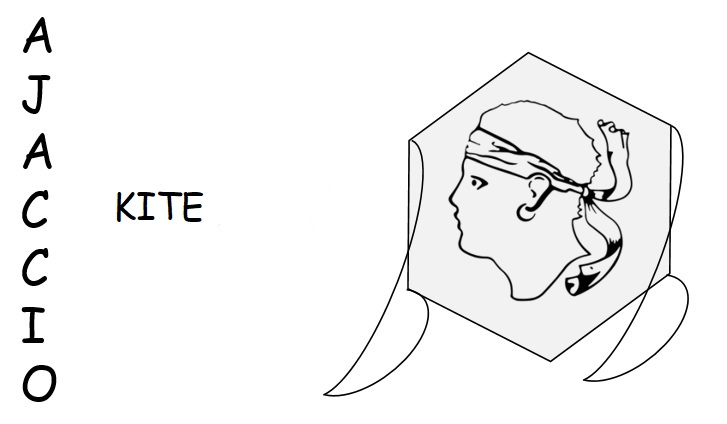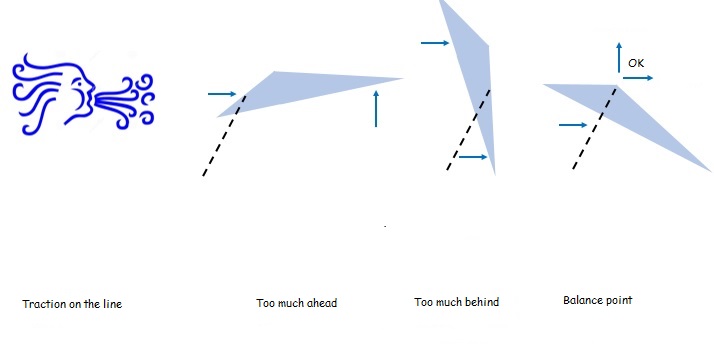The kite rises and holds in the
air thanks to the aerodynamic forces that the wind exerts on its wing.
All kites use the same
principle as
that of an airplane wing, that is to say the lift created by the speed
of the flow of air on a flat or arched surface.
The aerodynamic forces
(lift and drag), the kite weight and the tension force of the
restraining wire balance out.
The wing is usually
kept oblique to the wind at a precise angle given by the clamping.
A kite must be
stabilized if it tends to bow or twirl when the wind forces. We can for
that:
- give it a dihedron
(arch the transverse yard by stretching a wire between its two ends);
- give it a tail,
possibly weighted at its end;
- add vertical panels,
which act as drifts.



